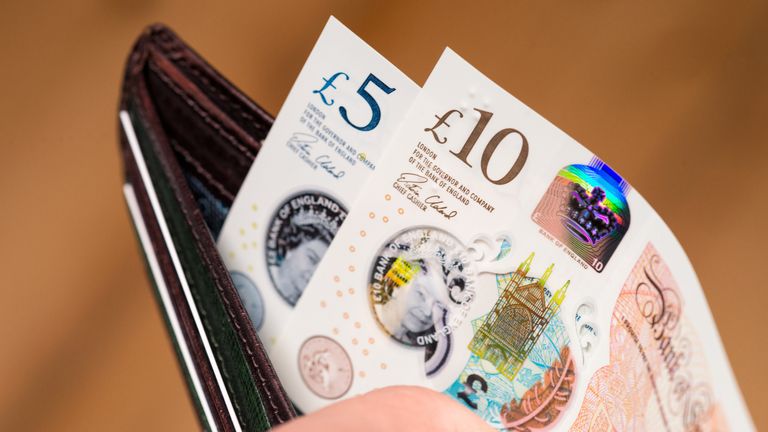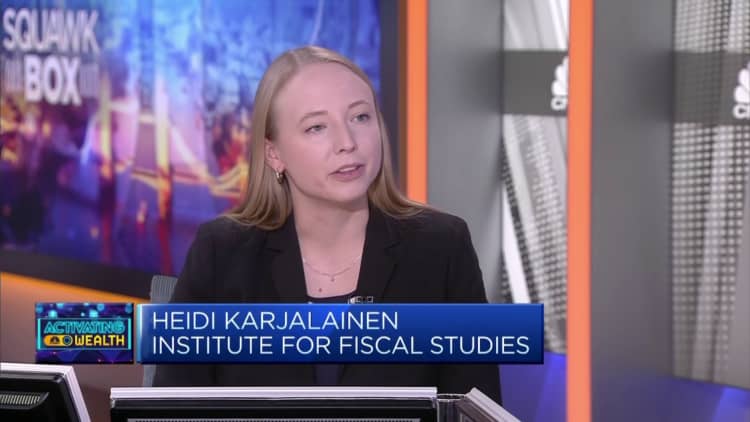The rate of price rises significantly slowed again in November to another two-year low, official figures show.
Inflation stood at 3.9% last month, according to the Office for National Statistics (ONS), a dramatic fall from the 4.6% recorded a month earlier as price increases slowed in transport, recreation, culture, and food with the biggest downward pressure coming from fuel.
Economists polled by Reuters had forecast a fall to 4.4%.
But the decrease is less steep than the drop from September when the consumer price index (CPI) measure of inflation tumbled from 6.7%.
Prices for some goods fell, the ONS said.
The cost of raw materials dropped by 2.6%, transport costs tumbled by 1.4% and goods leaving factories fell by 0.2%.
The figures published on Wednesday morning are still just under double the 2% inflation target aimed for by policymakers at the Bank of England. Such highs are why the central bank said it is too early to talk about cutting interest rates which have made the cost of borrowing more expensive in an attempt to bring inflation down.
Despite falling far short of the Bank’s target, inflation is at a more than two-year low – not since September 2021 has such a rate been seen – an indication of the scale of the cost of living crisis in recent months.
Another key metric of inflation, which does not track items susceptible to sharp rises and falls, such as food and energy, also fell.
The dip in core inflation – from 5.7% to 5.1% – will be of interest to the members of the Bank’s Monetary Policy Committee tasked with deciding interest rates.
The latest data means the UK has been brought in line with similar-sized G7 economies and has the same inflation rate as France and higher rates than Germany and the United States.
Chancellor Jeremy Hunt said: “We are starting to remove inflationary pressures from the economy.
“Alongside the business tax cuts announced in the Autumn Statement, this means we are back on the path to healthy, sustainable growth.
“But many families are still struggling with high prices so we will continue to prioritise measures that help with cost of living pressures.”






